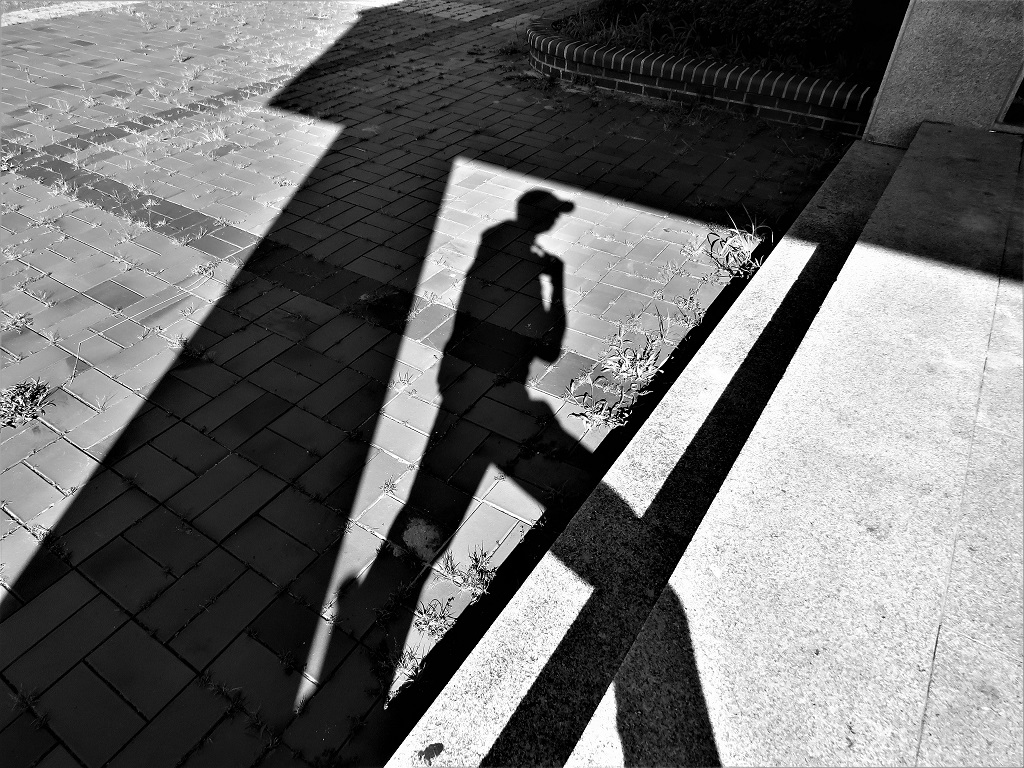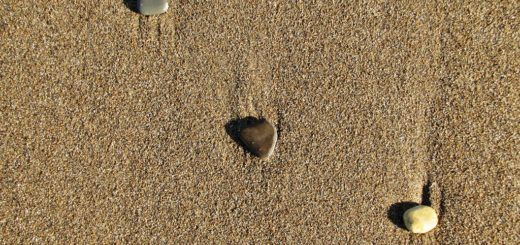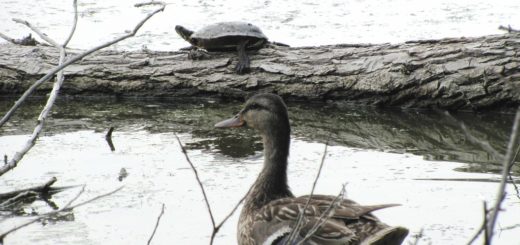Once More Around the Universe
One year ago today, I was sitting in a hospital bed awaiting surgery for a broken foot, trying to distract myself from the thought of losing my lifelong pastime and natural condition — walking — for an indefinite period of time. That evening, my chosen method of meditative self-discipline was to write about my experience for Limbo.
Thus began a series of four articles, all written during my hospital stay, and some under the influence of varying doses of painkillers I might add, which I united under the playful title, “As I Lay Living.” Though begun without a specific goal or outline, the whimsically-named series quickly evolved into a very serious examination of several interwoven themes of permanent importance to me: ancients and moderns, slowness and speed, circles and straight lines, suffering and spiritual development, and the mysterious but essential nexus between the fate of Eros and the demise of education in the modern world.
In hindsight, I see in these four essays, or rather these four parts of one organically evolving essay, a tidy summary of what may be called my personal credo, and a general exposition of my philosophic perspective — or, if you will, of my peculiar manner of living the philosophic life.
For readers who missed the pieces last year for whatever reason, or for newer readers who would like some insight into the soul of your host here in Limbo, I have decided to draw this collection — which had a great deal of personal emotional significance to me at the time, due to the conditions in which it was written and the succor its (mostly middle-of-the-night) writing process afforded me — back up to the website’s front page today, in order to provide you with a convenient opportunity to take the brief journey with me again, here at the end of one year’s cycle. Once more around the universe, as it were.
I provide links to each of the four parts below, accompanied by brief excerpts from the corresponding parts. Enjoy.
From “As I Lay Dying, Part One”:
What we call Western civilization, now essentially deceased, may be likened to a walker. It was slow, and valued slowness. The long walk (walk, never run) is a contemplative experience. It is a time for quiet thinking and thoughtful speech, which is to say walking is for being alone, or with a friend – or with a friend with whom you may nevertheless feel alone, in the sense of being without the masks and performances endemic to your presence in political life, or your “social self,” to defer to the modern lexicon. Running and driving are the motions of people in haste, souls obsessed with time. A walker has habituated himself to approaching life on the premise that “There is plenty of time,” whereas the speed traveler is habitually certain that he “has no time.” Paradoxically, this means the walker is forever straining against the limits of temporality, teasing the edge of eternity, while the speed traveler is hopelessly trapped in temporality, fatally oblivious to the possibility of any other mode of being.
Western Civilization was peripatetic; walking was its metaphor for living, walking in a circle (preferably around a defined perimeter) its physical analogue of thinking. Hence its essential movement was educational, its essential motive force the desire to know, its essential character the teacher, its essential relationship the friendship of souls — those who think together. It is no mere peculiarity, but rather a fact of world-historical significance, that Plato and Aristotle made friendship the key term of their moral theories, and the indispensable link between the civic and contemplative aspects of life, whereas modern moral philosophy has nothing relevant to say about friendship at all.
From “As I Lay Dying, Part Two: You Are Going to Die”:
If the civilized life is akin to a long walk through nature — and that includes human nature — then its definitive character is not destinations, not “highlights,” but continuity. The key to continuity, in all matters of will, is the avoidance of distractions. Destinations, too, when regarded as definitive, become mere distractions. A destination is not only an end point, but also a starting point. Hence a life built on concrete goals is like a walk that restarts indefinitely; one takes many steps, but gets nowhere. And do not fall for the error of imagining life as a sequence of progressive goals, which is to say progressive starting points. A thousand short, distinct lines will never comprise a complete circle, and circularity is the archetype of continuity. Thus, to say that life is a long walk is to say that its form is circularity, and its corresponding privation is every break in continuity….
How many of the things you cherish most, and even regard as essential and necessary to your identity, were found, not merely by accident, but as a direct or indirect result of a supposed failure or disappointment? The lifelong companion you would never have met had you not failed to enter your preferred school. The life-changing work opportunity that would never even have occurred to you had you been successful in your more orthodox career path years before. We both flatter and belittle ourselves when we imagine that the things that have gone well for us can all be traced in a simple straight line from intention to fruition. I am not talking about luck. I am talking about the human instinct for adaptation that allows us to find our way by means of failure, unless we inhibit the soul’s natural resilience and gracefulness under pressure with the self-imposed heavy gait of despondency.
From “As I Lay Dying, Part Three: Twenty Piddling Little Fountains”:
When an animal reaches puberty, that is the end of its maturation process. It will not develop significantly after that, will not learn anything essential beyond that point; which is why the magpies and lions of today live the same lives as the magpies and lions of two thousand years ago. They have acquired no new understanding, and developed no new skills or forms of communication to pass down through the generations. The moment they are sexually mature in the physical sense is the moment their learning is effectively complete. The animal’s life purpose, then, is achieved when it is capable of reproducing successfully. That is adulthood for the animal — the ability to perpetuate its species.
For humans, on the other hand, puberty is not the end of development — it is actually the beginning of development, by which I mean it is the start of our growth beyond animal nature into properly human nature. The ability to reproduce, and especially the desire for the act of reproduction, is only the first step in adult development. Then it is the much more important and delicate task of education to guide the soul into higher realms, by means of containing, contextualizing, and broadening the powerful new urges, either ennobling desire with the limiting norms and structures that produce family and community, or elevating it into our more purely spiritual expressions — beautiful language, art, religion, philosophy.
This, in outline, is how the desire for reproductive activity, which defines the base of animal nature, is transformed into eros, the longing for eternity, which directs us to the peak of human nature, and brings unity of purpose to life. Two key elements of this process, which is the essence of genuine education, are: delayed gratification, i.e., the painful prolongation of the period between desire and satisfaction, which transforms the simple urge for pleasure into passion and longing; and the gradual broadening of the scope of the desire to encompass so much more than the promise of transitory and repetitive release (the thousand short walks that arrive nowhere), but rather to offer a glimpse of our completion — the everlasting circle of the True, the Good, and the Beautiful.
From “As I Lay Dying, Epilogue: Memories of Walking”:
I was born with two defective feet; they had to be trained into proper position with a steel bar linking them between two specially-constructed baby booties. Without that corrective mechanism, under the encumbrance of which I learned to crawl and stand, I would never have been able to walk properly at all. Thus, in a simple example of an idea I have emphasized a lot recently in my writing, namely the importance of not only overcoming suffering and hardship, in the sense of finding a way to hurdle life’s obstacles, but also redeeming suffering, in the sense of making it a definitive aspect of your life’s wholeness, which is to say forcibly taking full ownership of your difficulties as the necessary means to your development, I not only managed, in spite of a birth defect, to learn how to walk, but actually made walking an essential and indispensable element of my very identity. I am a walker, philosophically a peripatetic, if you will; one who not only thinks while walking, but by walking, striding around my thoughts, encircling ideas until I have finally swirled them into their proper formation. Walking is how my mind works.



